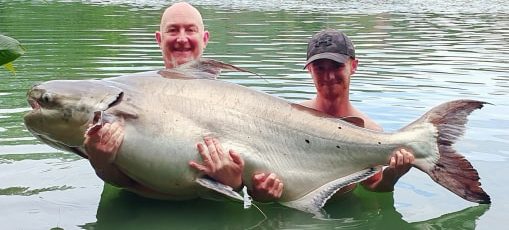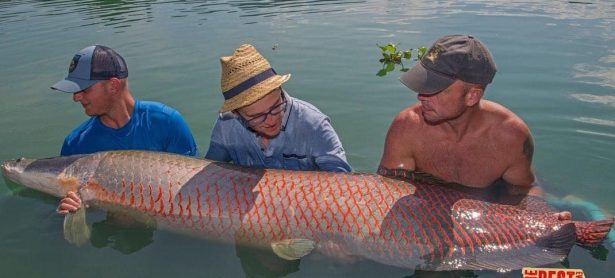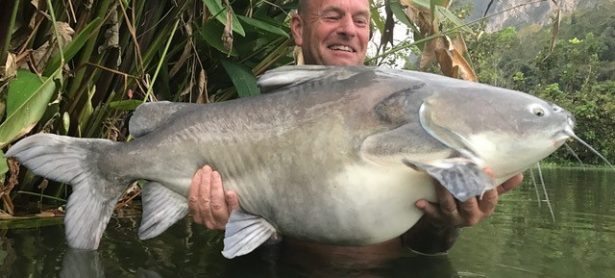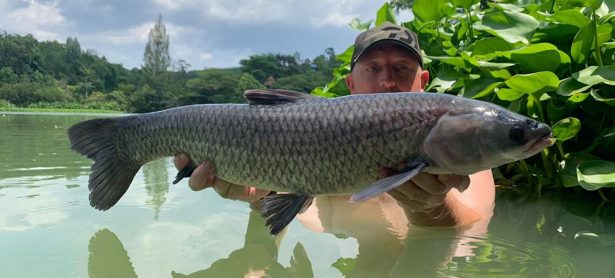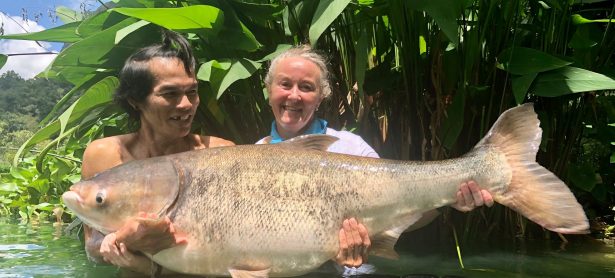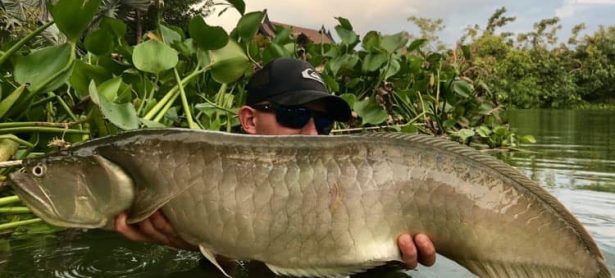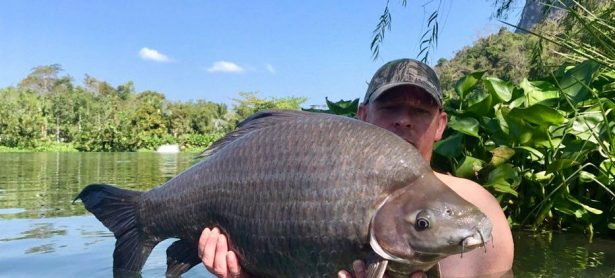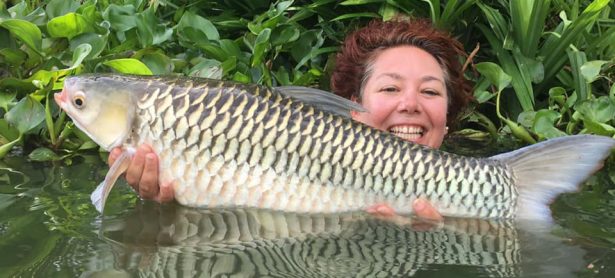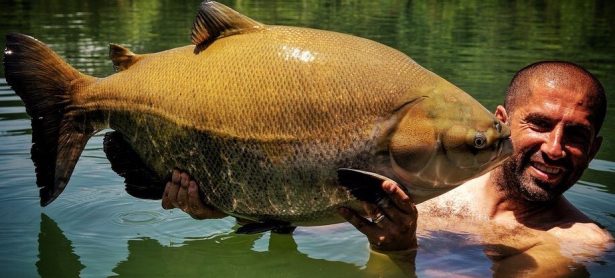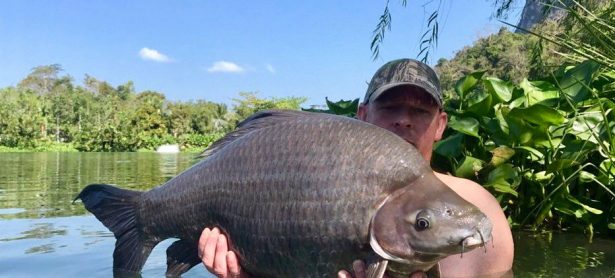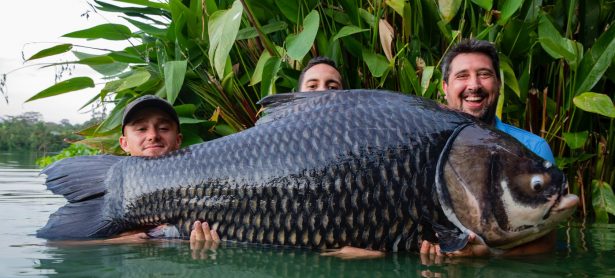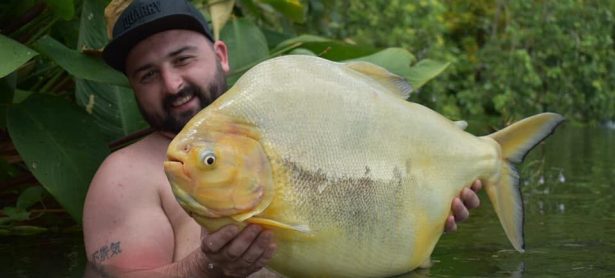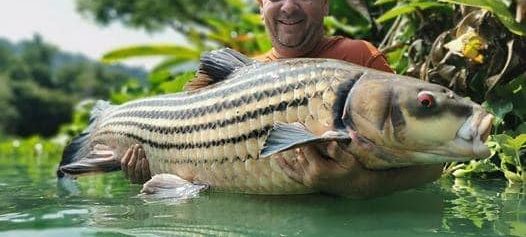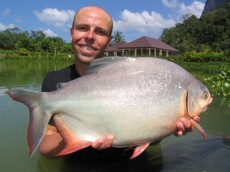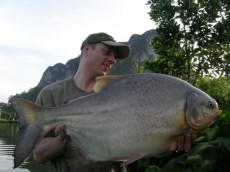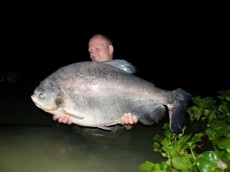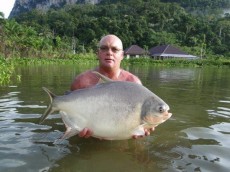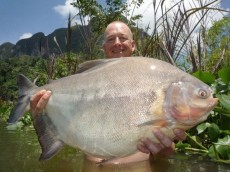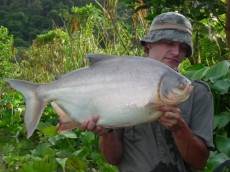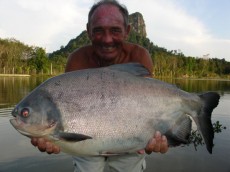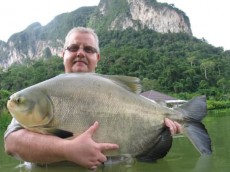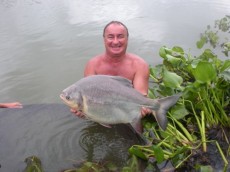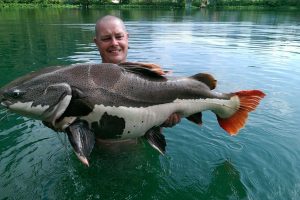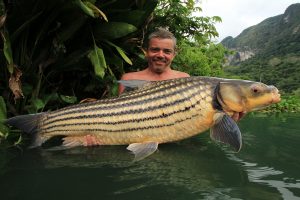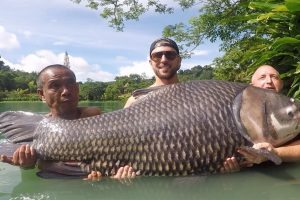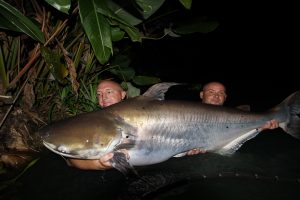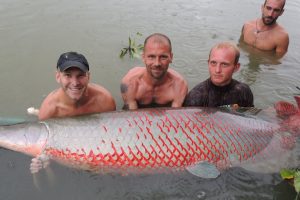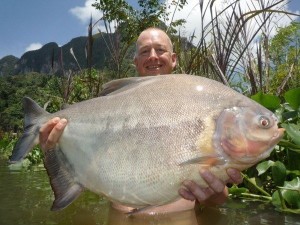 Name: Black pacu.
Name: Black pacu.
Species: Piaractus brachypomus.
Thai name: Pla jermet dam.
Max length in excess: 1.5m.
Max weight: 40kg.
IGFA record: 24.9kg (55ib-0.)
Diet: Fruit, nuts, insects, shrimp, bread, fruit boilies and pop-ups, pellet and occasionally fish.
To fish for our pacu try float fishing close to the water hyacinth beds with bread or banana. Alternatively fish on top of the plateaus over a bed of maize with a fruit pop-up, especially pineapple, or alternately try maize. They are also a tremendous fish to target on the fly. The pacu is often called a vegetarian piranha, but although they prefer fruit, nuts and vegetables they will eat almost anything as they are opportunist feeders. They never eat living fish, but will sometimes take fish chunks. They have blunt teeth like a human, and they use them in the wild to crush hard nuts. You do not need wire, but tough braids such as Quicksilver or Ton-Up by Kryston are recommended. When hooked the pacu will go on short, sharp runs, constantly changing direction and spinning in circles. Once they spot the landing net they will dive and turn using their body mass to shed the hook, and most pacu are lost at the landing net stage of the fight.
General facts on pacu:
Pacu are a narrow, plate-shaped fish with a small mouth full of an impressive array of dentistry. Although their human-type teeth are quite blunt, they can snap on your fingers if you are silly enough to put your fingers in their mouths. The black pacu has a dark black upper body and back with a dull silver belly, and their grey fins are tipped with black. In the wild they live in rivers, and also river or stream fed lakes. They are often found under trees and weedbeds, seeking out shade and cover where they feed on falling nuts and fruit. The pacu will only spawn in running water over gravel runs. In Brazil the government set up a breeding programme a few years ago and released many red pacu into the wild as a food source, where they have taken over the black pacu’s habitat to such an extent that the black pacu is now very rare in the wild.



